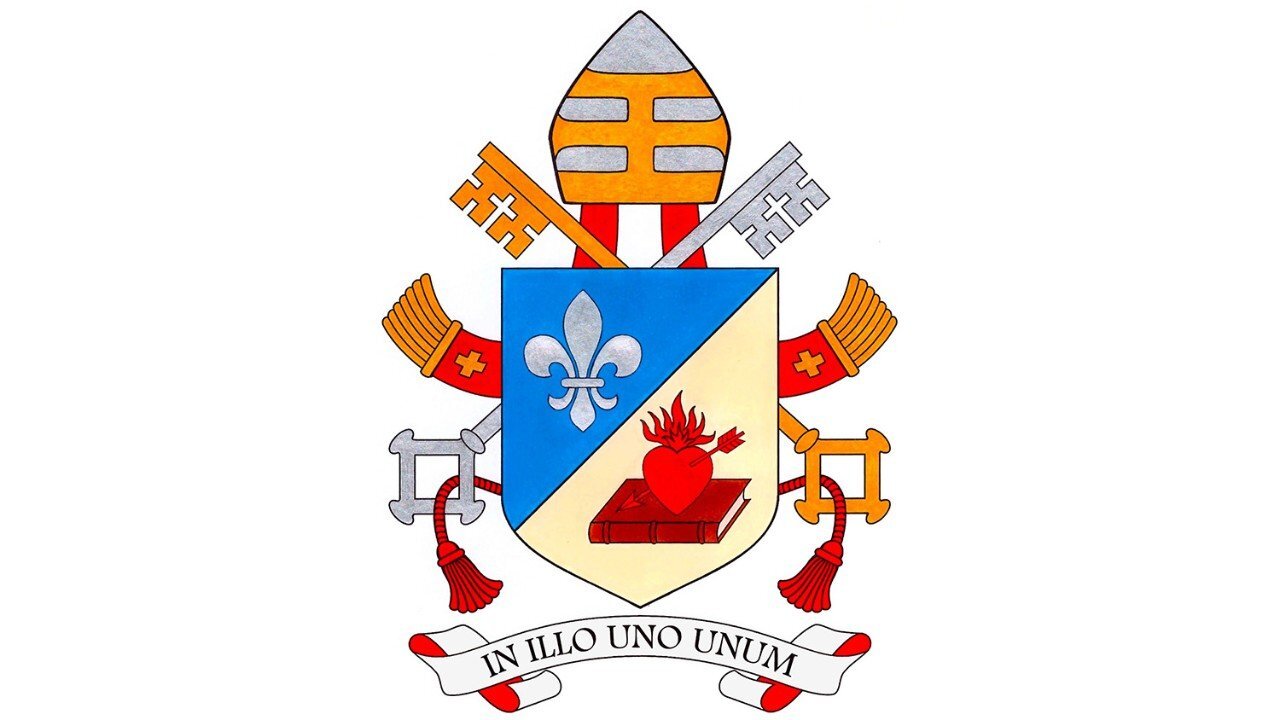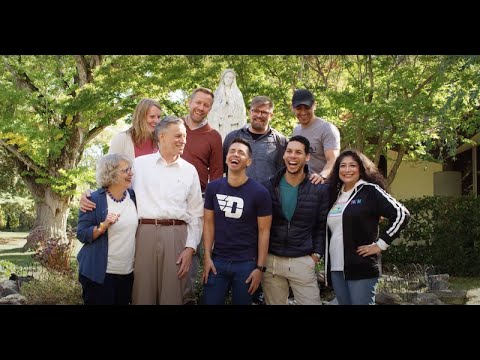This essay first appeared in our weekly Scripture reflection newsletter on May 31, 2025.
Thirty years ago last month, Saint John Paul II wrote a beautiful encyclical on Christian unity called “Ut unum sint,” which took its name from Jesus’s words in today’s Gospel: That they all may be one.
That phrase, however, represents more than simply Jesus’s words. It is his heartfelt and urgent prayer to the Father: that all his disciples may be one. And the unity Jesus desires for his disciples is a powerful one: it is the unity that exists between the Father and the Son. Just as the Father and Son are one, so must his disciples all be one. And we are to be one in the very love that flows between the Father and Son. As the New Testament scholar Francis Moloney, S.D.B., says about this passage, Jesus prays that “all disciples be swept into the love that unites the Father and the Son.”
But it’s a prayer, meaning it’s also a hope that Jesus expresses, something that has not yet come to be. He prays, as Father Moloney says, that the “oneness of love among believers might reflect the oneness of love that exists” between himself and the Father.
Just as the Father and Son are one, so must his disciples all be one. And we are to be one in the very love that flows between the Father and Son.
Now does it look like that in the Catholic Church today? Let’s be honest: not everywhere.
In some places in the church, that love is evident. I see that kind of love existing within Catholic families, among small faith sharing groups, and among Catholics in parishes—especially in ministries to men’s groups, women’s groups, young adults, LGBTQ people, those in bereavement and the like. I see it more generally in tight-knit parishes where people have learned to rely on one another, support one another and, most of all, listen to one another. I see it in Catholic high schools and colleges, in campus ministry programs like Kairos and Emmaus retreats. I see it in movements like Sant’Egidio, Focolare and Pax Christi, and in organizations like the Order of Malta and the Knights of Columbus, to name just a few. In these places there is a real, distinct and quite beautiful sense of unity that communicates God’s unifying love to others.
But let’s be frank. There are plenty of places in the church where you don’t see unity. In fact, you see the opposite.
If you are brave enough to go online, you will find a great deal of disunity, expressed as judgment, condemnation, division, exclusion and outright hatred. Indeed, one of the biggest scandals in the church in the last decade (in addition to the ongoing sexual abuse scandals) was the cruelty directed at Pope Francis by Catholics during his papacy, sometimes even by a few in the hierarchy. It’s one thing to disagree with the pope, it’s another to call him a heretic, an apostate, a false pope, to pray for his demise and to make mean-spirited videos and memes about him. This was actively working against unity in the church, which meant actively working against Jesus’ desires. Sometimes it seemed like the motto of the Catholic Church was not “See how they love one another” but “See how they shove one another.”
Unity communicates love. If for no other reason, we should work tirelessly for unity.
So why is unity important? Well, first of all, because feeling united with our brothers and sisters is a balm to the soul. It’s comforting to know that you are, and you feel that you are, part of the community, part of the Body of Christ. Second, and related to that, disunity is painful. To be told, or to feel, that you are shut out, less than or “not a real Catholic” is painful. And it needs to be said that no one is the perfect Catholic. All of us sin in one way or another. But too often, some of us are made to feel shut out. And that’s a real source of pain. Finally, as Jesus says, unity is important because it reflects the unity between the Father and Son, and also reveals the love between them. Unity communicates love. If for no other reason, we should work tirelessly for unity.
That’s one reason I’m so glad that Pope Leo XIV has chosen as his motto In illo, uno unum. “In the One, we are one.” It’s taken from St. Augustine’s commentary on Psalm 127, where he says, “Although we Christians are many, in the one Christ we are one.” Every time you look at the Pope’s coat of arms, remember that. This is Jesus’s desire, and now the Holy Father’s desire.
Look, it’s a challenge. And it has been a challenge ever since the days of the early church. In fact, even before that, when the disciples were arguing about who is the greatest among them. But because it’s Jesus’s prayer, it must be our prayer too. That they—that we—may be one.



